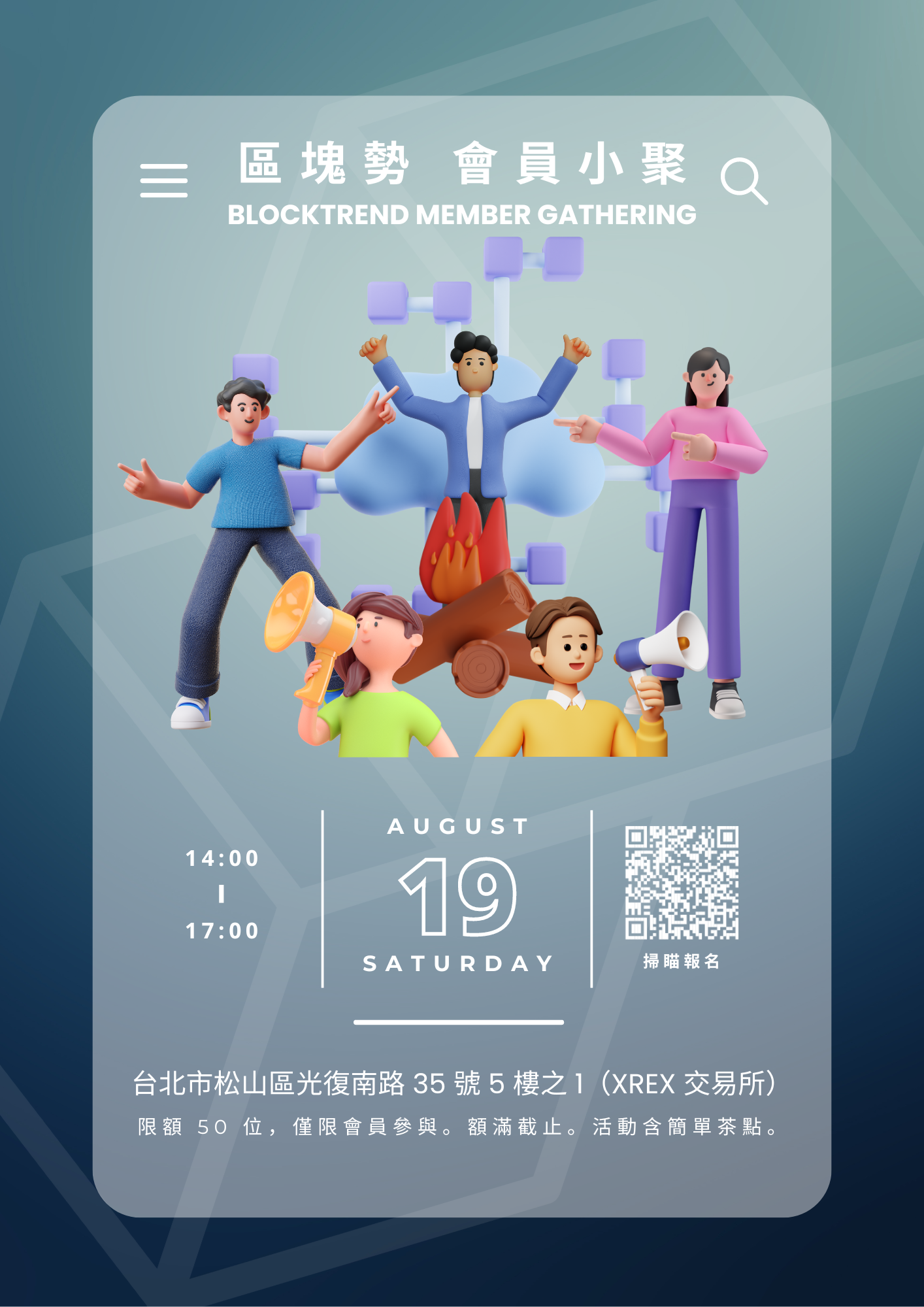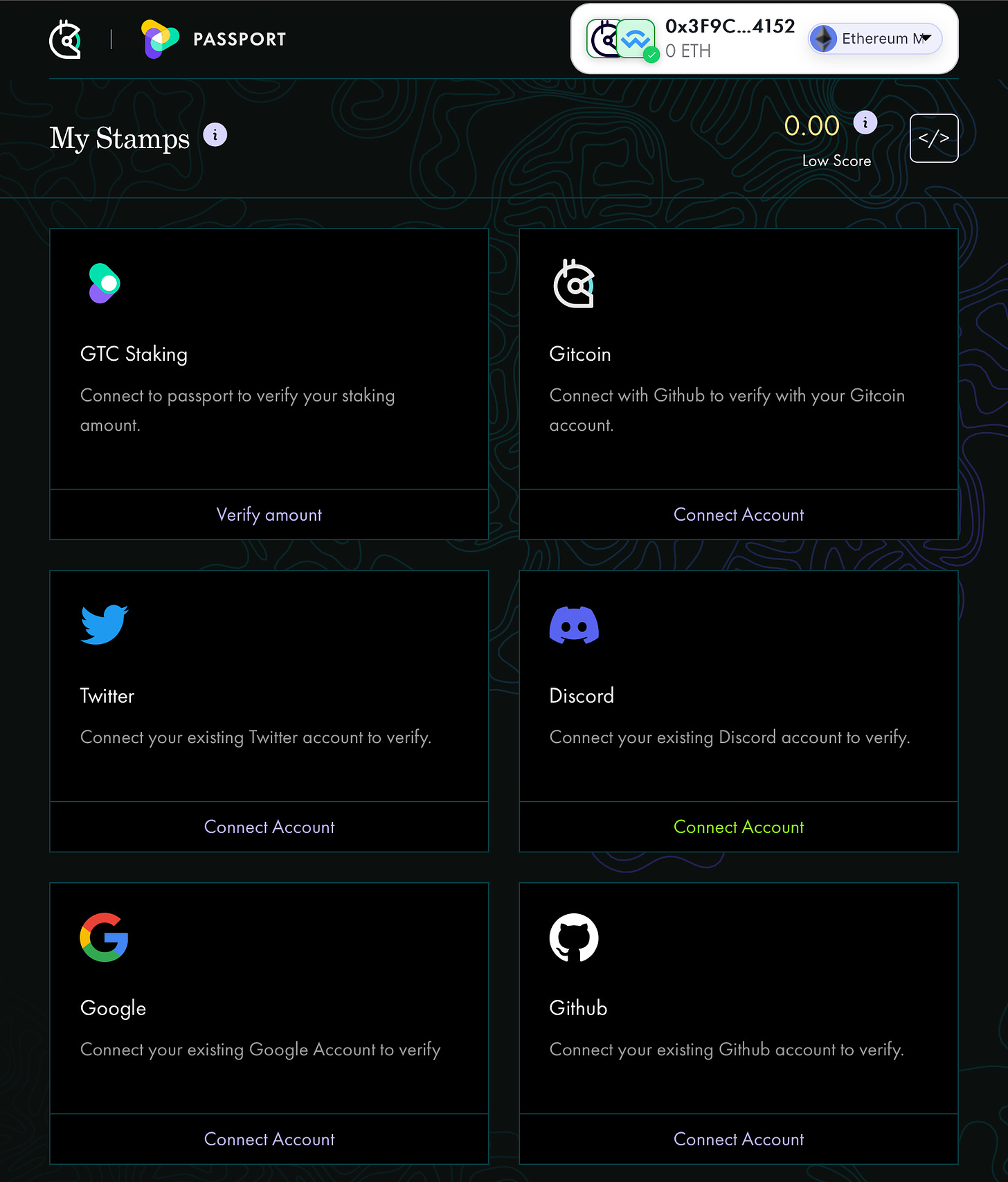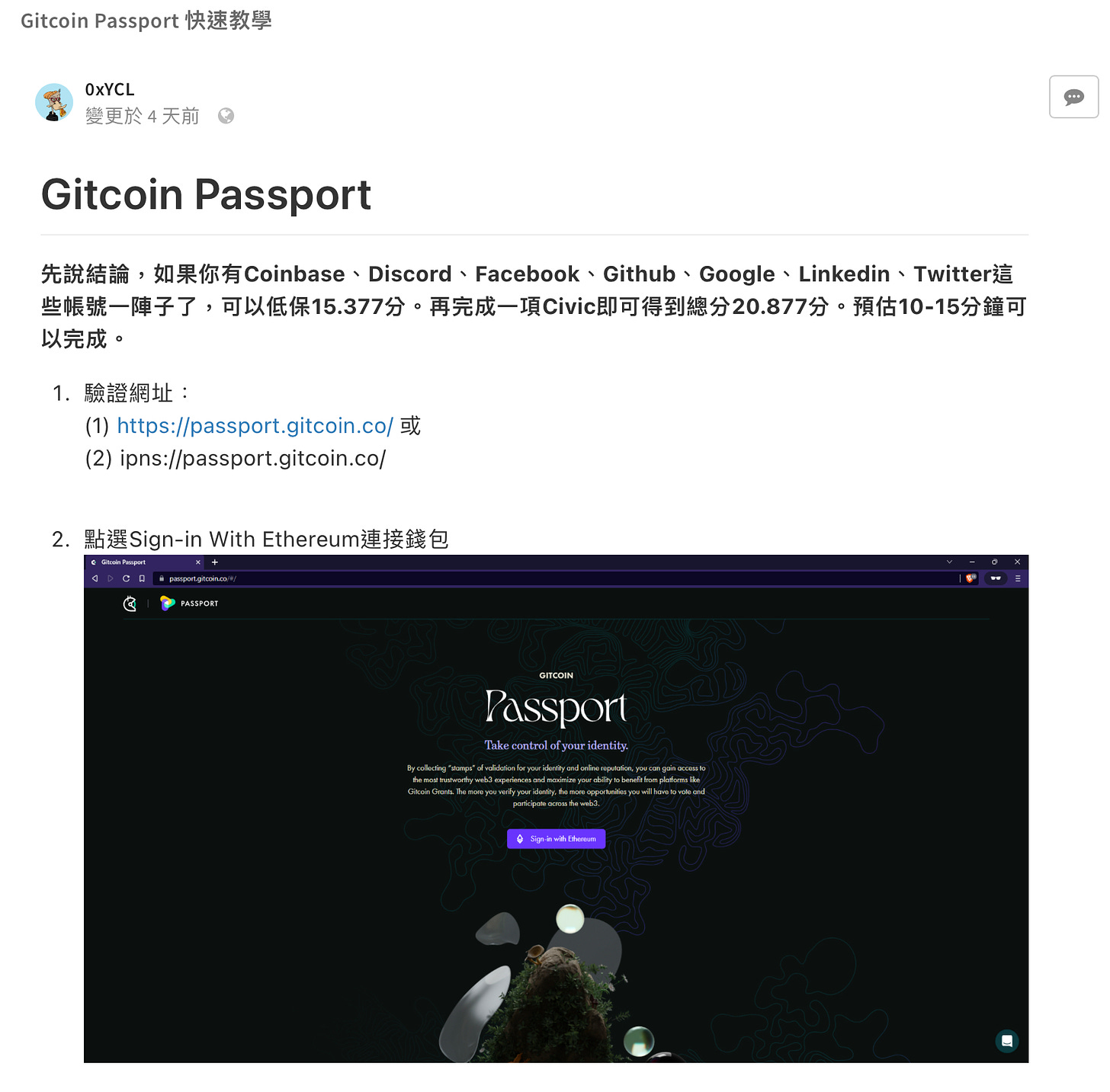GM,
Blocktrend Member Meetup Scheduled for This Saturday Afternoon (8/19) at XREX Exchange
A Blocktrend member meetup is set to take place this Saturday afternoon at the XREX Exchange. The event will feature an array of activities, including casual networking over refreshments, hands-on demonstrations, live discussions, and an Ask Me Anything (AMA) session.
Attendees are kindly reminded to ensure their mobile phones are fully charged before attending the event. This gathering not only offers an opportunity for free-flowing interactions but also provides a platform for attendees to engage in practical activities and insightful discussions within the dynamic Blocktrend community.
Please make sure not to miss this event and the chance to enhance your Blocktrend experience. We look forward to seeing you there!
Getting to the Heart of the Matter
The 18th edition of Gitcoin Grants, a public goods crowdfunding campaign, kicked off today at 8:00 PM Taiwan time. The event is set to run for two weeks, concluding on August 29th. Derived from the mechanism of public goods funding, topics like MEV utilization, quadratic funding, and decentralized identity have emerged as significant and intriguing aspects of the Web3 landscape. Regrettably, even within the cryptocurrency media, there is a dearth of discussions on these subjects. Only occasionally do articles touch on these topics, often from the perspective of "potential hidden airdrops."
Both articles this week will revolve around Gitcoin as the central theme. This piece aims to guide readers through the process of getting started with Gitcoin Passport, creating their very first decentralized identity. Upon completion, individuals can proudly claim themselves as digital citizens with dual (or even multiple) nationalities, delving into the realm of Web3 with a unique and decentralized persona.
Dual Nationality
Do you possess dual nationality? The Taiwanese government allows its citizens to hold passports from two different countries concurrently. Aside from election-related matters, having dual nationality is often seen as a competitive advantage in most Taiwanese contexts. It symbolizes a lifeline in extreme situations, providing an escape route when needed. However, obtaining dual nationality comes at a high cost, with even the seemingly simplest process, like going abroad for childbirth, requiring expenditures in the hundreds of thousands of Taiwanese dollars.
In contrast, the Gitcoin Passport introduced in this article can be regarded as the current "highest value" choice for a new passport. Not only does the application process take only 10 to 15 minutes, but the cost is also merely a few hundred Taiwanese dollars. Moreover, it's accessible to everyone.
Currently, there are two primary ways to acquire nationality worldwide: jus sanguinis (citizenship by blood) and jus soli (citizenship by birthplace). The Gitcoin Passport doesn't consider lineage or place of birth; the sole requirement is that citizens must "return to their country" every 90 days. Regularly updating the passport is necessary to maintain its validity. While this condition might seem stringent in the physical world, it's much more feasible in the digital realm – after all, we're online every day.
Decentralized Identity
Upon opening the Gitcoin Passport website, you're not met with the conventional design of a passport, but rather a prominent "Sign-in with Ethereum" button. Upon clicking it, the site will prompt you to connect your wallet. This is the most significant departure from the physical world. In the digital realm, a wallet is akin to an individual's physical body. One must possess a wallet (such as MetaMask) in order to proceed and obtain the passport.
After connecting your wallet and signing in, if you see the image below, it means you've successfully acquired a passport issued by Gitcoin!
Decentralized Identity
When you acquire a government-issued passport, you can use it immediately to travel. However, what Gitcoin issues is essentially a blank passport; an endorsement from an institution is required to give it validity. Individuals must take their Gitcoin Passport for a spin across the internet, participating in a grand digital adventure, to breathe life into this passport. As depicted in the image above, it's essentially a game of collecting stamps. The more stamps you collect, the higher your "Unique Humanity Score" in the top-right corner of the screen. This score unlocks various online services in the future.
Currently, there are 25 verification entities and 73 verification criteria on Gitcoin Passport. If you pass them all, your Unique Humanity Score can reach a maximum of 100. Yet, the passport isn't a competition for the highest score; it's more akin to passing a national exam. Achieving a score of 20 or more is considered passing, granting you official citizenship as a digital citizen of Gitcoin and providing you with basic citizen rights. If any online service requires verification of your Gitcoin Passport within the next 90 days, you can seamlessly proceed just like a citizen of that realm.
At first glance, completing 25 verification units may seem tedious, but the process itself isn't complicated. Most steps merely involve logging in and granting authorization, often in two simple steps. These verification units can be broadly categorized into three groups:
1. Online Accounts
2. On-Chain Records
3. Human Proof
Accounts like Google, Facebook, and LinkedIn belong to the first category. If you have these accounts, acquiring stamps is relatively easy. Even if you don't, registering one is straightforward. For example, if you have a Facebook account, logging in and authorizing Gitcoin Passport to verify your account can earn you 0.689 points. If you also have a profile picture, you can earn an additional 0.689 points.
Each stamp represents a different score, and the thresholds for obtaining them vary. For instance, a GitHub account verification is more stringent, taking into account the account's age. New accounts won't work; an account must be at least 90 days old. The longer the account's history, the higher the score. If you've had these online accounts for over a year, you'll score at least 15 points. You're only 5 points away from passing.
In other words, possessing various online accounts alone isn't enough to become a Gitcoin citizen; on-chain records are required as well. The thresholds for on-chain records are slightly higher; users need to pre-fund their wallet with some ETH to cover transaction fees. Unless you've kept all your assets on centralized exchanges or have never used the MetaMask wallet, attaining a score isn't difficult.
If you've ever conducted an ETH transfer on the Ethereum network, you can earn 1.27 points. Purchasing 5 GTC tokens (about $6) and staking them can grant you 1.21 points. Participating in a round of Gitcoin Grants can provide an additional 1.57 points. By putting all these together, you can accumulate 5 points. The transaction fees for Ethereum are relatively low during bear markets; budgeting around $10 should be sufficient.
The most elaborate verification involves human proof, but it's not difficult. It merely requires web services to confirm your humanity through interaction. Taking Civic as an easily accessible example, it comprises 3 verification criteria: CAPTCHA, uniqueness, and liveness verification. Using the low-cost Polygon blockchain, users only need to deposit the equivalent of $1 worth of MATIC into their wallet to breeze through the CAPTCHA and mobile camera verification process.
More advanced methods include BrightID, which assesses social relationships, and Proof of Humanity, which asks users to upload a publicly available video of themselves. These are just a few ways to prove your human identity. At this point, you might wonder if there's a guide that simplifies the process to easily achieve 20 points. Indeed, such a guide exists.
Passport Guide
Currently, two Blocktrend members have created two distinct guides, both written in Chinese. Below is the guide produced by 0xYCL. It not only provides a detailed step-by-step explanation with images but also compiles a remarkable table that outlines how to maximize your score with the least time and cost investment. Highly recommended!
Another guide has been crafted by Denken. This guide is user-centric; for instance, if you're a Web2 user, you can earn a certain score. By engaging in additional Web3 activities, you can accumulate more points. Currently, he has written the guide in English. If a Chinese version is completed in the future, I will provide an updated link.
Gitcoin Passport isn't just a digital passport; it's also the most user-friendly and practically applicable decentralized digital identity on the internet. The physical passport you present while traveling represents the Ministry of Foreign Affairs' certification of your identity. However, when you present your Gitcoin Passport online, it symbolizes the results of 73 verifications from 25 verification entities confirming your identity.
These verification entities, verification criteria, and corresponding scores are likely to adjust dynamically over time. It's not difficult to imagine that one day Gitcoin Passport might incorporate projects like Worldcoin, which scans iris patterns; individuals who have undergone iris scans would earn a certain score. Even integrating government data, such as Taiwan's mobile e-ID, to enable Taiwanese citizens to attain higher scores on Gitcoin Passport isn't far-fetched.
On another note, I believe an increasing number of online services will adopt Gitcoin Passport scores in the future as a crucial tool against Sybil attacks. As Gitcoin Passport matures, it won't only make it harder for airdrop hunters to thrive; it will also allow individuals to establish a true digital identity system in the online world. From users of online services to becoming online citizens.
In conclusion, let's conduct a simple survey:
Blocktrend is an independent media outlet sustained by reader-paid subscriptions. If you think the articles from Blocktrendare good, feel free to share this article, join the member-created Discord for discussion, or add this article to your Web3 records by collecting the Writing NFT.
In addition, please recommend Blocktrend to your friends and family. If you want to review past content published by Blocktrend, you can refer to the article list. As many readers often ask for my referral codes, I have compiled them into a single page for everyone's convenience. You are welcome to use them.





